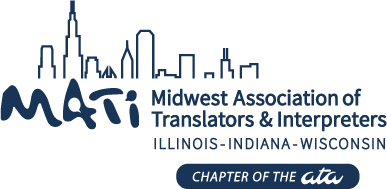Group Practice and the ATA Certification Exam
By Erin Woodard, MATI Member
An August 2016 ATA Savvy Newcomer article by Juan Lizama described how a group of translators from the Oregon Society of Translators and Interpreters (OSTI) studied together for the ATA certification exam. A group of approximately twelve language professionals met weekly online, translated assignments, and reviewed translation strategies prior to taking their respective tests. The group used the ATA exam resources to review one another’s translations in order to provide themselves with a realistic grading experience. In addition, they had ATA exam graders review translations of past exams in order to obtain feedback.
This group practice approach to preparing for ATA’s certification exam is a helpful way for other linguists to prepare, as well. As translators, we often submit our work to private clients and translation agencies for onward transmission to the end user, however we don’t often have the opportunity to work together and review our translations with fellow professionals. An exam practice group allows translators to provide and receive feedback about their work in an effort to continuously improve the quality of their translations. In addition, it helps linguists prepare for the very specific and targeted grading scale of the ATA certification exam.
Local groups of MATI members may consider setting up practice groups with fellow translators from their area to prepare for the upcoming certification exam being held before the MATI conference or for future exams.
MATI members who want to form a practice group might consider meeting other interested members at upcoming charisMATIc events. Small groups might also consider reaching out to other MATI members via social media, phone or email to set up an online study group.
Members who want to participate in a practice group could source content from many locations, including current events, trade magazines, etc. In addition, the ATA offers a practice exam, which is an opportunity for study groups to not only review each other’s translations, but also to receive feedback directly from the ATA exam graders. This is a great way to identify strengths, areas for improvement, and exam-specific pitfalls you may be experiencing.
Best of luck to all linguists in the Midwest as you prepare for upcoming exam sittings, whether you choose to study individually or as a group!
